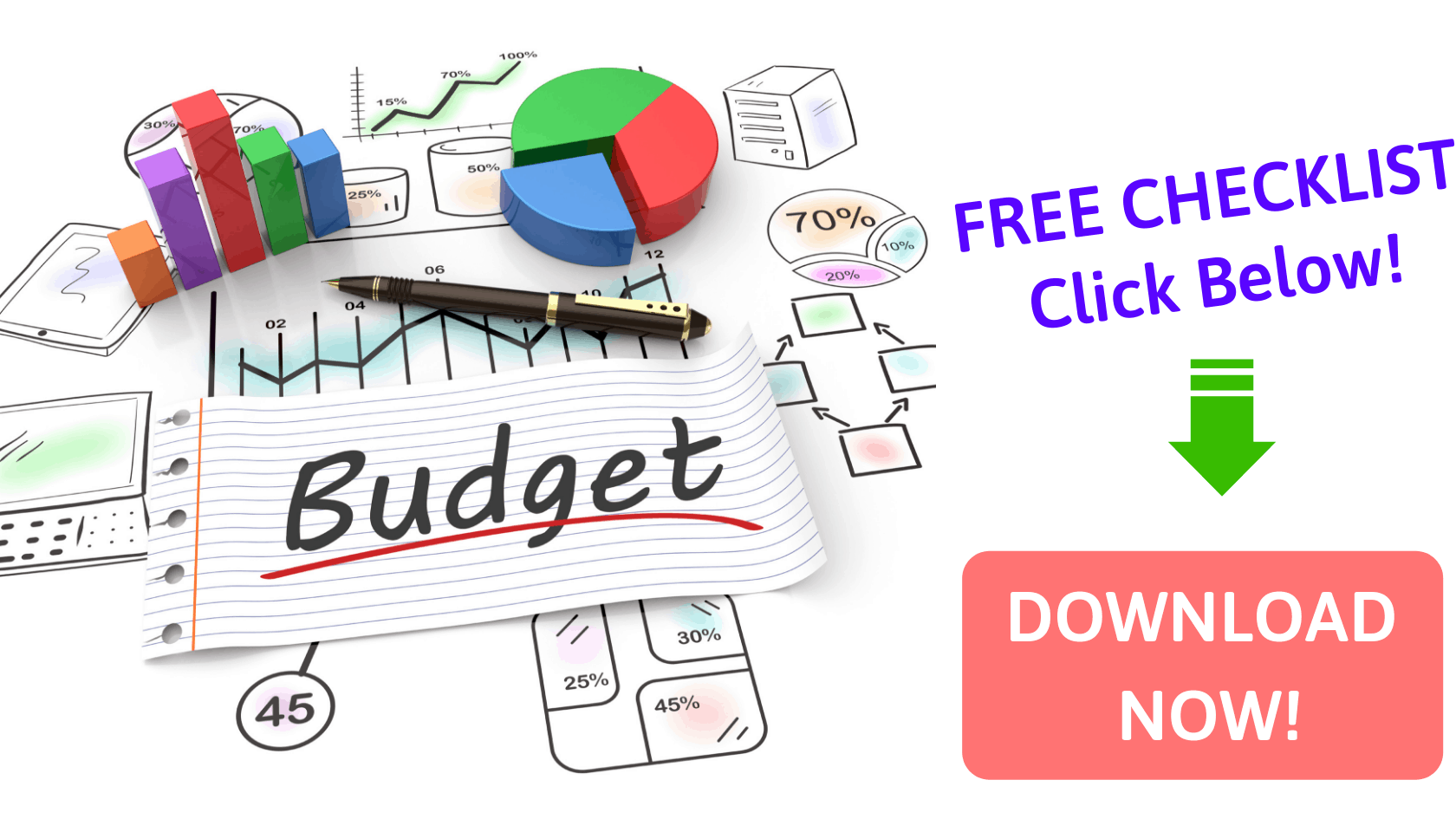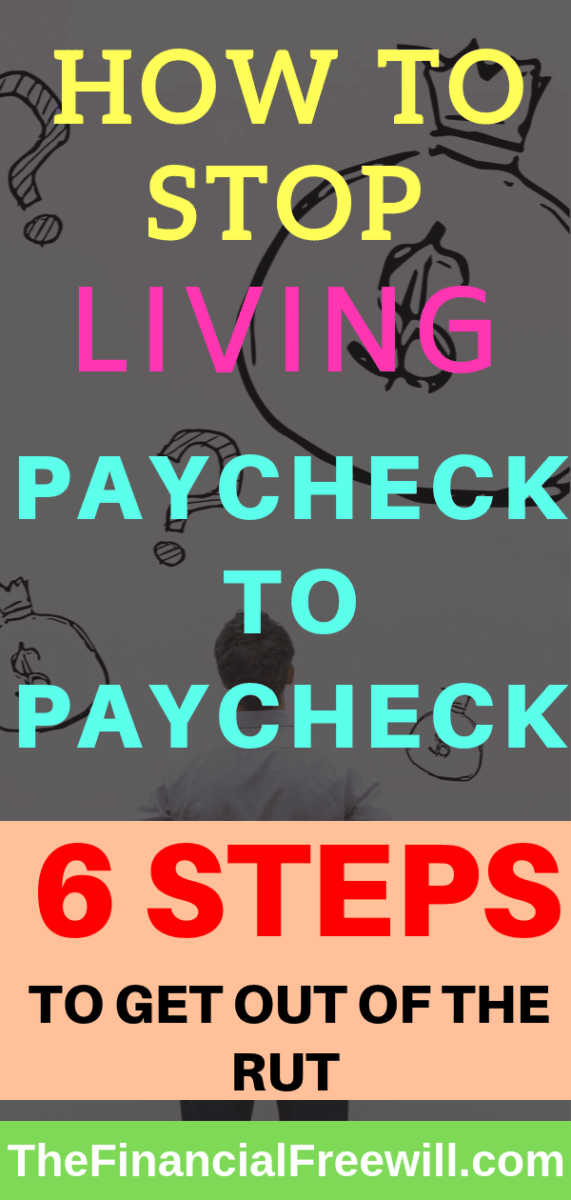This article may contain affiliate links. I might earn a small commission if you make any purchases through my links and it comes at NO cost to you. For more information, please read my Disclaimer page.
It feels fantastic to receive a paycheck and see that money in the bank. But, to see that money spent in 2 weeks with no savings is both stressful and disheartening. Simply put, living paycheck to paycheck will get you nowhere.
According to a survey by career builder, nearly 78% of the US workers rely on paychecks every 2 weeks with nothing saved.
That’s pretty startling and concerning in my opinion!
So, what does this mean?
It means that 3 out of 4 US workers do not have enough to pay for their bills after 2 weeks.
One major factor leading to this glaring statistic is the spending and saving habits of those workers. You see, it’s not just about how much you earn. You could be making a 6 figure salary but still, be living paycheck to paycheck.
The 2 key factors that matter are Spending habits and Savings.
So, how do you stop falling prey to this vicious cycle every 2 weeks? Let’s discuss a few ways you can plan for a better life (financially).
Do You Know Your Total Income?
I’m sure the answer is a resounding “YES” at the first instinct.
But hang on – are you considering every dollar that you bring in every month?
Total income includes:
- Salary for all members (including all jobs)
- Side hustles or gigs you perform during weeknights and weekends
- Income from offering any lessons (music, golf, painting, teaching, etc.)
- Income from any other services you offer
- If you’ve invested in stocks, the dividends you earn monthly can also count toward income
Consider taking into account every single source of income that you earn consistently. This helps you determine the household income.
If you want to stop living paycheck to paycheck, account for every dollar coming into the bank.

Do You Know Your Total Spend?
Once you know your total income, focus on determining how much you spend. This is key to your overall effort to stop living paycheck to paycheck.
Why?
Because if you either end up spending everything or spend more than what you earn, you’re in trouble, my friend.
One of the most significant issues with spending habits is that most people do not know how much they spend. To make it worse, some do not even know what are they spending their hard-earned money on.
I would strongly encourage you to start tracking your spending every day if you’re not doing so already. Without this, you will not be able to save consistently.
Do You Know How Much You Save?
If you’re not saving anything every month, the answer is pretty simple. But if you are, you need to determine if that is enough.
Your ticket to financial independence is buried in this one question. If you are not diligent about the amount you save every month, it will feel like an eternity before you have enough saved.
So, set a monthly amount you would like to save based on your total income and total spend.
Once you decide, revisit your spending and figure out where can you make the sacrifice to save extra. If you can’t afford to eat lunch outside every day, brown bag your lunch.
If you can’t afford $4 coffee every day, start making your coffee at home.
For more ideas and tips on how to save money, check out my article where I talk about 25+ creative ways to save.

Do You Have Any Student Loans OR Debt?
If you do, paying that off should be your #1 priority. Those student loans come at significant interest rates. The same goes for your debt – if you do not pay it off, it starts accumulating interest.
If you’re tired of living paycheck to paycheck, getting rid of all of your debt before anything should be your mission.
Create an action plan by month on how are you going to pay off your debt. Include all your income, expenses, and determine the savings – Income (minus) Expense.
Go back and make adjustments to your spending so you could save more. Allocate as much savings as possible to pay off your debt.
For a detailed, step by step guidance on debt pay off, check out my article on how to pay off your debt.
Once you’ve identified your answers to the above questions, it’s time to create an action plan!
Step 1: Create A Budget
A budget essentially acts as a blueprint. Tracking your income, expenses, and savings will help you get ahead of the game.
To stop living paycheck to paycheck, track your money and save as much as you can.
Assign money to each spending area of your budget every month. Track your daily spend and at the end of the month, compare your actual spend vs. what you budgeted at the beginning.
Keep in mind; it takes a couple of iterations for your spending habits to adjust, so don’t be disappointed.

Step 2. Create A Saving Strategy
Once you have your budget in place, create a saving strategy. A saving strategy will help you keep track of your monthly savings goal.
If you are working more than one job, try to push that income into a savings account. You can also save money from your weekend gigs and manage your expenses from primary income.
For example, you can implement a 30-day challenge.
If you want to buy something, do not buy it immediately (even though you find a deal). Give yourself 30 days to think about the purchase. Is the purchase a need or a want? Can you live without making the purchase?
After 30 days, if you’ve forgotten about the purchase, it’s not important, and you would save money.
Step 3. Save More By Reducing Expenses
It is much easier to reduce your spend instead of finding additional income opportunities.
The quickest way to save more is to reduce your daily expenses. You can cut down on the food you buy outside, coffee, eating dinners outside, weekend splurges, etc.
There are several ways you can find to reduce your expenses and save – you need the discipline and focus on incorporating spending adjustments into your lifestyle to save more and stop living paycheck to paycheck.

Step 4. Do Not Miss Monthly Debt Payments
If you’re serious about getting out of the living paycheck to paycheck rut, this step is the single most important factor.
Any form of debt payment should not be missed either a student loan or a credit card payment. If you’re missing monthly payments, you are charged interest and penalties on that payment.
This means that if you miss a $100 monthly payment, you could very well end up paying an additional $20-$30 or even more in penalties.
Student loans and credit card debt are the top 2 reasons why people are not able to save money and get out of the debt jail.
Paying off your debt should be your #1 priority irrespective of your income.
Step 5. Grow Your Money
Once you’ve paid off your debt and saved some money, it’s time to grow that money!
You can invest in stock markets, 401(k), open a high yield money market savings account, put money into a ROTH IRA, or park your money into a savings account.
Try to find the best investment option that works for you (AND NOT for others) and grow your money. Do not get fooled by the multiple get-rich-quick schemes out there.
If it were that easy to grow your money, everyone would be a millionaire!
A slow and steady approach to investing and growing your money should be your focus!
Step 6. Build A Cushion
Once you have paid off your debt, focus on building a cushion (also known as an emergency fund)
As you know, life is unpredictable, and you never know what comes around. So, you don’t want to be caught off guard completely. Having a cushion will help you deal with unexpected, one-time expenses without hurting your savings and investments.
If you do not have a cushion, you will either have to tap into your savings & investments or borrow.
Either option will push you back a few steps if you’re trying to stop living paycheck to paycheck.
Building an extra layer of cash exclusively for unexpected expenses can give you the peace of mind in case of emergencies.

Summary
Living paycheck to paycheck is not a curse. There are plenty of ways to get out of that cycle. If you want to get to a place where you no longer have to worry about the income coming in every 2 weeks, follow the steps in this article to get started.
There is no silver bullet to achieving financial independence. However, how fast you get to that goal depends on you.
If you implement your action plan, make necessary adjustments every month, try new ways to save more money, pay off your debt, and invest and grow your money, you’re headed in the right direction.
Please share your experiences, thoughts, tips, and ask away any questions in the comment section below!



Missing monthly debt payments are the worse. They can ruin your credit and it is not easy to repair it. Great tips.
Indeed. They could do serious damage to your financial plan and washout your hard work. Thanks!
Great tips! Getting out of the paycheck to paycheck cycle can be challenging but you’re so much better off financially once you do it. And saving right from the beginning is so important for staying out of the paycheck to paycheck cycle.
Absolutely Rebecca. Saving and working with a financial plan can help keep you away from financial trouble. Thanks!
I agree! Saving money should be a strategy within your budget. Not an afterthought. Because let’s face it we always intend to save what’s leftover at the end of the month, but usually nothing is leftover. You need a Strategy!
That’s correct. Thanks!
I love all your practical tips here and your real life questions that need to get asked, even if they are hard.
Thanks Brooke!
Great guide! It’s so important to have a financial strategy but most people don’t. In times like these it’s even more important to have savings.
Thanks Jackie!
Thanks for sharing having a plan and getting the right mindset are important. I will be taking notes from your post
Thanks Hailey!
This was super helpful! Awesome post!
Thanks Kayla!
I definitely needed this thanks for sharing!
Thanks Caleb!
This was so eye-opening, Sam! I am still in my early 20’s but I know I need to start rethinking how I manage my money for the future. I’m guilty of not knowing exactly how much money I make – I know my main income, but I have several other streams that I don’t take into account. Thank you for these reminders!
Glad you found it helpful Julianne! Thanks!
Great post. Thank you for sharing. It is amazing how fast you can turn your finances around when you create a budget. Really seeing where all the money goes is key!
Absolutely Tiffany! Thanks for sharing!
Good article. Thanks for sharing your tips. Getting out of the cycle is hard but worth it in the end.
Thanks Lori!
I have 5 grand worth of debt from leaving an abusive ex. It was so sloppy I had no money saved. I’m gonna try to use your tips to save up to pay it back x
Thanks Megan!